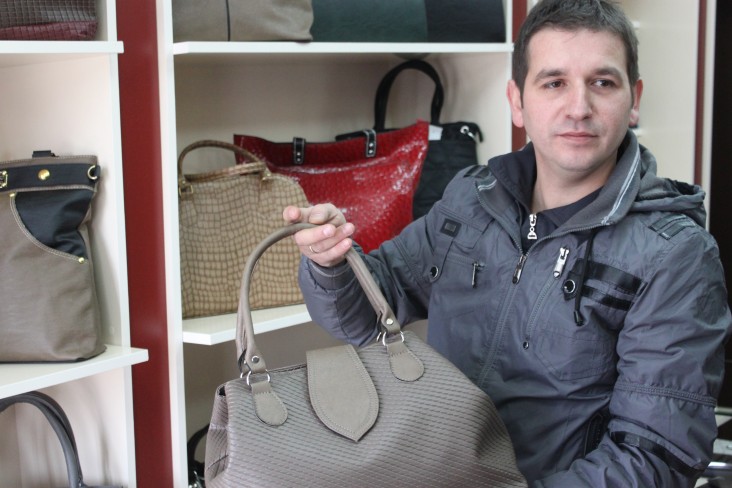
Egmend Daija has always made an art of his work as an artisan, designing and creating by hand one-of-a-kind purses, briefcases and just about every other kind of product that can be sewn from leather. Daija has replaced the leather interiors of antique cars, upholstered barber chairs and even fabricated cases used to cradle gifts from the Kosovo Government to the White House and the Vatican.
“When I design something, I see it already made before I even start,” says Daija, who excelled in painting and drama before starting as a leatherworker’s apprentice at age 14.
Indeed, Daija’s skill, flair and experience set him apart, even in this city renowned for its craftsmen. Still, for years Daija worked informally, alone with a single sewing machine and his prized collection of patterns, to create products sold piecemeal or through a distributor. As a result, growth remained elusive, as Daija lacked the capacity and tools needed to create in quantity the more complex designs that danced in his head.
In 2012, Daija approached USAID’s Young Entrepreneurs Program, which ran from September 2010 through September 2013, for assistance. The program responded with training, grants and ongoing coaching and advice. Since then, the former craftsman has reinvented himself as a small manufacturer. Today, Daija, 34, runs a small, spotless factory that boasts six sewing machines and two recently hired workers.
The additional machinery, purchased with a small grant from USAID, and manpower allow Daija to create more sophisticated designs in leather, with greater speed, quality and efficiency than ever before. Meanwhile, USAID’s encouragement in registering his business has given Daija newfound access to bank loans, allowing him to invest further in growth.
While Daija still sells through a distributor in Pristina, he recently opened a retail store in his hometown as well. There, his wife, Jetmira, stocks and sells his growing output of leather products. Despite all that Daija has gained, he has taken care not to lose his artistic vision. If anything, he credits USAID for enhancing it.
“I can be more expressive now—I have more time to think of new designs,” Daija says. “And I also now have the tools to create whatever it is I can imagine.”







Comment
Make a general inquiry or suggest an improvement.